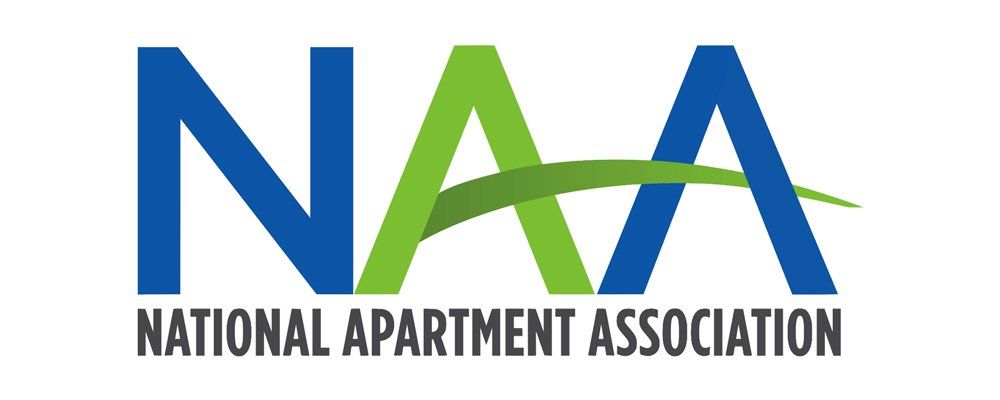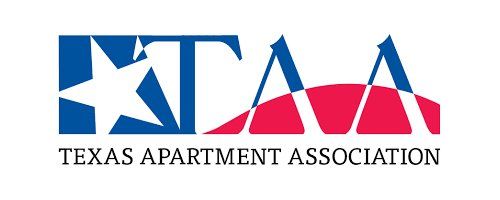Blog & News
Why Reliable Internet Services for Large Properties Are a Must-Have in 2024
Home » Blog » Bulk Internet Services » Reliable Internet Services for Large Properties
Table of Contents:
- Importance of Reliable Internet Services in Large MDUs
- Challenges of Providing Consistent Connectivity
- Technological Solutions for Reliable Internet
- Infrastructure Considerations
- Choosing the Right Service Provider
Importance of Reliable Internet Services in Large MDUs
Reliable internet service is crucial for large multi-dwelling units (MDUs) like apartment complexes, hotels, and condominiums. With the growing demand for high-speed internet, property managers and owners need to ensure that their residents and guests have access to consistent and fast connectivity. Internet usage has expanded beyond basic browsing to include streaming, gaming, remote work, and smart home devices. This makes reliable internet a key factor in maintaining high resident satisfaction and staying competitive in the real estate market. Understanding the impact of internet service on resident experience, property management efficiency, and marketability is essential for anyone involved in managing large MDUs.
Impact on Resident Satisfaction
Internet connectivity is now a fundamental utility, much like electricity and water. Residents expect reliable and fast internet as part of their living experience. When internet service is poor, it can lead to frustration and dissatisfaction. This can result in negative reviews and complaints, affecting the reputation of the property. On the other hand, when internet service is excellent, it enhances the quality of life for residents. They can enjoy seamless streaming, quick downloads, and reliable video calls, making their overall living experience much better.
Benefits for Property Management
For property managers, having reliable internet service can streamline operations and improve efficiency. Many property management tasks, like monitoring security systems, managing smart building technologies, and handling online communication with residents, depend on a robust internet connection. Reliable internet also supports the use of property management software, which can automate and simplify various tasks, saving time and reducing errors. Additionally, it enables better communication with residents through online portals and apps, enhancing the overall management process.
Competitive Advantage in the Market
In a competitive real estate market, offering reliable internet service can give a property a significant edge. Prospective tenants often consider internet quality when choosing a place to live. Properties with superior internet infrastructure can attract more residents, potentially allowing for higher rental rates. Furthermore, reliable internet service can be a selling point in marketing materials, highlighting the property's modern amenities and technological capabilities. This can differentiate a property from others that may not prioritize internet quality, making it more attractive to tech-savvy renters.
Key Takeaway:
Reliable internet service is essential for resident satisfaction, efficient property management, and gaining a competitive edge in the real estate market.
Challenges of Providing Consistent Connectivity
Providing consistent internet connectivity in large multi-dwelling units (MDUs) presents several challenges. These properties have unique needs due to their size and the number of users. Ensuring that every unit has reliable, high-speed internet requires careful planning and the right infrastructure. Understanding the challenges can help property managers and owners find effective solutions to keep their residents connected. The following sections will explore the main challenges faced in providing consistent internet service in large properties.
Infrastructure Limitations
One of the biggest challenges is the existing infrastructure of the building. Older buildings may not have been designed with modern internet needs in mind, resulting in inadequate wiring and outdated technology. Upgrading the infrastructure can be costly and time-consuming, but it is necessary to support high-speed internet. Newer buildings need to incorporate advanced cabling and network equipment to meet the demands of today's internet usage. Ensuring that the infrastructure can handle current and future technology is critical for consistent connectivity.
High User Density Issues
High user density in large MDUs can lead to network congestion and slow internet speeds. When many residents are using the internet simultaneously, it can strain the network, causing buffering, slow downloads, and dropped connections. This is especially common during peak usage times, such as evenings when people are streaming movies or using video calls. To address this issue, properties need to implement solutions like higher bandwidth, better network management, and load balancing to distribute the internet load evenly across all users.
Interference and Signal Strength Problems
Interference from other electronic devices and signal strength issues can also disrupt internet connectivity in large properties. Wi-Fi signals can be weakened by physical obstacles like walls and floors, leading to dead zones where the internet is slow or unavailable. To overcome these problems, properties can use technologies like mesh Wi-Fi systems, which use multiple access points to provide strong, consistent coverage throughout the building. Additionally, placing routers and access points strategically can help minimize interference and maximize signal strength.
Key Takeaway:
Providing consistent internet connectivity in large MDUs involves overcoming infrastructure limitations, managing high user density, and addressing interference and signal strength issues.
Technological Solutions for Reliable Internet
Implementing technological solutions is essential for providing reliable internet in large multi-dwelling units (MDUs). With the right technology, property managers can ensure that residents have fast, stable, and widespread connectivity. Modern advancements in networking can address many of the challenges associated with high-density living environments. In this section, we'll explore some of the key technologies that can enhance internet reliability in large properties.
Fiber Optic Networks
Fiber optic networks are among the best solutions for providing high-speed and reliable internet. Unlike traditional copper cables, fiber optics use light to transmit data, which allows for faster speeds and higher bandwidth. This technology can handle the demands of multiple users streaming, gaming, and working from home without experiencing slowdowns. Installing a fiber optic network in an MDU ensures that residents have access to the fastest internet speeds available, making it a valuable investment for property owners.
Mesh Wi-Fi Systems
Mesh Wi-Fi systems are designed to provide comprehensive coverage throughout large properties. Traditional routers often struggle to cover every corner of an MDU, leading to dead zones and inconsistent connectivity. Mesh systems use multiple nodes placed strategically around the property to create a seamless network. These nodes communicate with each other to ensure that the Wi-Fi signal is strong and stable everywhere. This technology is particularly effective in large buildings with many units and can significantly improve the internet experience for residents.
Advanced Modem and Router Options
Using advanced modems and routers can also enhance internet reliability in MDUs. Modern modems and routers come with features like
dual-band or tri-band technology, which helps manage multiple devices more efficiently. They also offer better range, faster speeds, and improved security features. Investing in high-quality networking equipment ensures that the internet infrastructure can support the needs of all residents. Additionally, regular updates and maintenance of these devices are crucial to maintaining optimal performance.
Key Takeaway:
Utilizing fiber optic networks, mesh Wi-Fi systems, and advanced modems and routers can significantly enhance internet reliability in large MDUs, ensuring residents have fast and consistent connectivity.
Infrastructure Considerations
Proper infrastructure is critical for ensuring reliable internet service in large multi-dwelling units (MDUs). The design and installation of the network infrastructure play a significant role in the quality and consistency of the internet connection. It's important to consider the specific needs of the property and its residents when planning and implementing the network. This section will discuss the key infrastructure considerations for providing dependable internet service in large properties.
Network Design and Planning
Effective network design and planning are the first steps in creating a reliable internet infrastructure. This involves assessing the layout of the building, the number of units, and the expected internet usage. A well-designed network should include adequate cabling, strategically placed routers and access points, and redundancy to prevent single points of failure. Planning for future growth and technological advancements is also essential. By considering these factors during the design phase, property managers can ensure a robust and scalable network.
Installation Best Practices
Proper installation is crucial for the performance of the network. Following best practices during installation can prevent many common issues that lead to connectivity problems. This includes using high-quality cables and connectors, avoiding interference sources, and ensuring that all components are installed correctly. Professional installation by experienced technicians can help avoid mistakes and ensure that the network is set up to perform optimally. Regular testing and validation during the installation process can also identify and address any potential issues early on.
Maintenance and Upgrades
Ongoing maintenance and upgrades are necessary to keep the network running smoothly. This includes routine inspections, firmware updates, and performance monitoring. Identifying and addressing issues before they become major problems can prevent downtime and maintain consistent internet service for residents. Upgrading outdated equipment and incorporating new technologies can also improve network performance. A proactive approach to maintenance and upgrades ensures that the network can continue to meet the evolving needs of the property.
Key Takeaway:
Proper network design, installation, and ongoing maintenance are essential for creating and maintaining a reliable internet infrastructure in large MDUs.
Choosing the Right Service Provider
Selecting the right internet service provider (ISP) is crucial for ensuring reliable and high-quality internet service in large multi-dwelling units (MDUs). The choice of provider can significantly impact the performance, reliability, and customer support experienced by residents. Evaluating providers based on their reliability, service packages, and support options is essential. This section will discuss how to choose the right ISP for large properties.
Evaluating Provider Reliability
Reliability is a key factor when choosing an ISP. This includes the provider's track record for uptime, network performance, and how quickly they resolve outages. Researching customer reviews and ratings can provide insight into the reliability of different providers. It's also helpful to ask for references from other MDUs serviced by the provider. Reliable ISPs will have a solid infrastructure, robust network management practices, and a reputation for consistent service.
Comparing Service Packages
Different ISPs offer various service packages, so it's important to compare these options to find the best fit for the property's needs. Consider factors such as bandwidth, speed, data caps, and pricing. Some providers may offer bundled services, including TV, which can be more cost-effective. Understanding the specific needs of the residents, such as high-speed internet for streaming and gaming, can help in selecting the right package. Additionally, looking for flexible contracts and scalable plans that can grow with the property's needs is beneficial.
Long-term Support and Service Level Agreements
Long-term support and clear service level agreements (SLAs) are essential for maintaining a reliable internet service. An SLA outlines the provider's commitment to uptime, response times for service issues, and penalties for not meeting these standards. Good customer support is crucial for quickly resolving any problems that arise. Ensure the ISP offers 24/7 support and has a dedicated team for handling issues in
MDUs. A strong partnership with the ISP, backed by a comprehensive SLA, ensures that the property can maintain high-quality internet service over the long term.
Benefits of Partnering with a Reputable Bulk Internet Service Provider:
Partnering with a reputable bulk internet service provider like MDU Datacom can enhance residents' internet experiences and streamline property operations. Bulk providers ensure high-speed, reliable internet, even during peak usage, which is crucial for resident satisfaction. They also offer comprehensive support and maintenance, easing the burden on property management. This allows property owners to focus on other tasks, knowing their internet infrastructure is well-managed.
Frequently Asked Questions (FAQs)
Contact Us
MDU Datacom
11111 Katy Freeway Houston, TX 77079
(346) 355-5528









